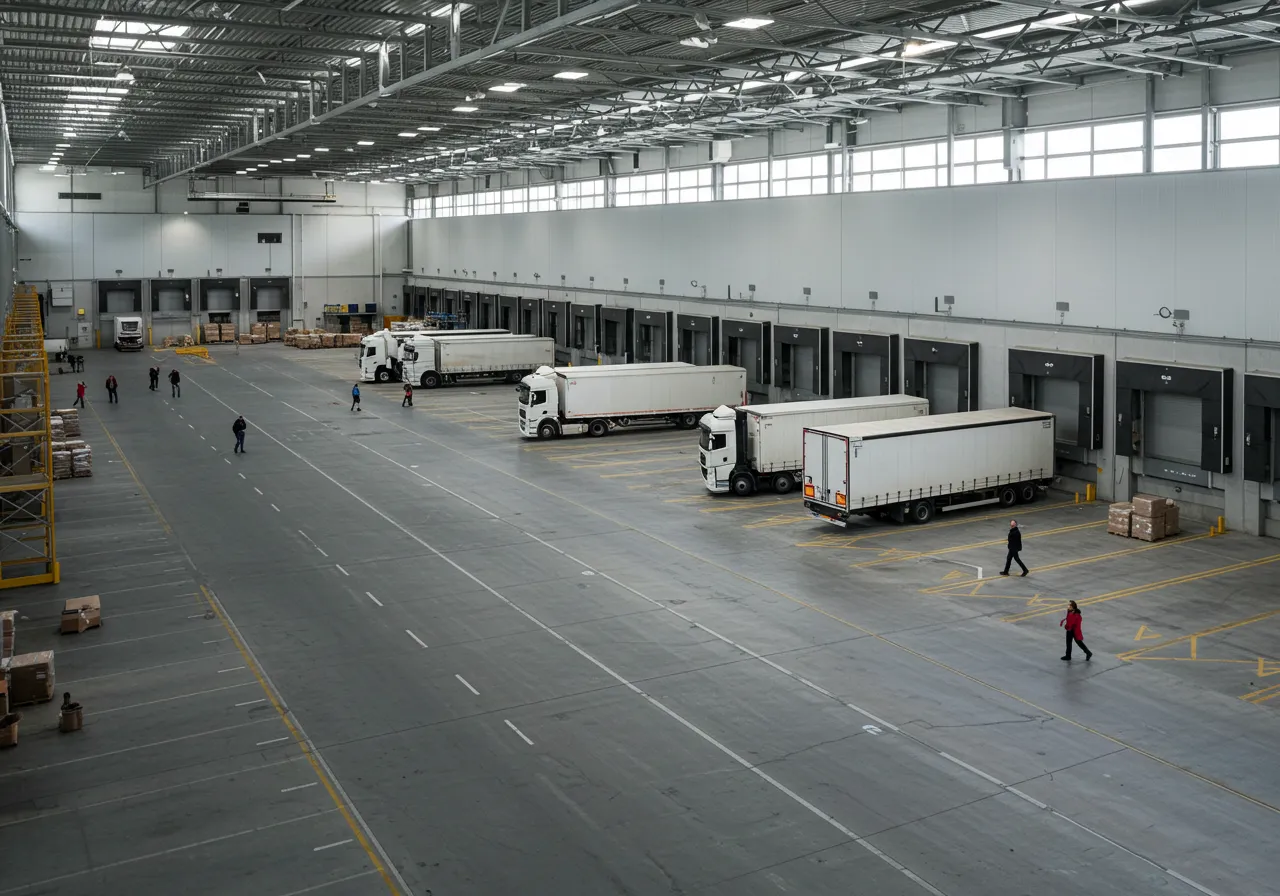
Boost Efficiency with Lean Logistics
Optimize operations, cut inefficiencies, and enhance delivery speed by up to 30% using lean supply chain methodologies.
Streamlined Operational Processes


Strategic Cost Optimization in Logistics
Industries We Serve with Tailored Logistics Solutions
- Retail: Enhance your supply chain efficiency by leveraging real-time inventory tracking systems, ensuring stock levels are always optimal. Our logistics solutions have helped retailers reduce stockouts by 15% and decrease overall shipment times by 20%, leading to increased customer satisfaction.
- Manufacturing: Streamline production schedules with just-in-time delivery and integrated warehouse management systems. Our approach has enabled manufacturers to reduce production cycle times by 25% and cut inventory carrying costs, optimizing overall asset utilization.
- Healthcare: Safeguard sensitive medical supplies with our temperature-controlled logistics and precise tracking from origin to destination. We've successfully reduced spoilage rates by 10% and ensured compliance with stringent regulatory standards, thus maintaining the integrity of critical healthcare products.
- Technology: Accelerate product launches with efficient logistics solutions that include rapid prototyping distribution and agile supply chains. Our methods have supported tech firms in cutting lead times by 30%, facilitating quicker market entry and competitive advantage.
- Automotive: Drive efficiency with our specialized logistics services, including vendor-managed inventory and synchronized assembly line deliveries. These strategies have led to a 15% reduction in assembly lead times for automotive clients, allowing for smoother operations and timely product rollouts.
Lean Management Tactics in Logistics
- Waste Reduction: By implementing lean logistics principles, companies can decrease excess inventory and unnecessary processes, lowering operational costs by up to 25% and minimizing carbon footprints, as evidenced by firms in the automotive sector.
- Continuous Improvement: Utilizing a Plan-Do-Check-Act (PDCA) cycle, businesses in logistics can enhance process efficiency over time, seeing productivity increases of 15% by regularly refining operational strategies and engaging frontline workers in feedback loops.
- Value Stream Mapping: This technique helps logistics professionals visualize and optimize the entire supply chain, identifying bottlenecks and reducing lead times by approximately 20%, particularly in fast-paced industries like e-commerce.
- Just-In-Time: By reducing inventory holding costs, Just-In-Time delivery systems enhance cash flow and lead time efficiency, achieving inventory turnover rates improvement of up to 30%, crucial for sectors with perishable goods like agriculture.
- Kaizen: Through fostering a culture of continuous small improvements, logistics firms can enhance team collaboration and operational efficiency, resulting in a reported 10% reduction in process lead time, which has been particularly effective in warehouse management.
Lean Features
Efficient Delivery
Utilize real-time GPS tracking and dynamic routing algorithms to optimize delivery paths, reducing transit times by up to 25%. This not only decreases fuel consumption but also increases delivery precision, ensuring on-time arrivals that enhance customer satisfaction and loyalty.
Time Efficiency
Leverage just-in-time inventory management to cut lead times by 20%, enabling faster response to market changes. Streamline order processing with automated workflows, reducing manual intervention and allowing quicker adaptation to demand fluctuations, enhancing overall supply chain agility.
Inventory Management
Apply Kanban systems to maintain optimal stock levels, reducing excess inventory by up to 30%. This facilitates cost savings on storage and minimizes the risk of obsolescence. Enhanced demand forecasting techniques ensure stock availability aligns perfectly with customer needs, reducing backorders.
Risk Mitigation
Strengthen supply chain resilience through predictive analytics to anticipate and mitigate disruptions. Implement multi-sourcing strategies to diversify supply bases, ensuring continuity of operations even in adverse conditions, thus reducing potential revenue losses by up to 15%.
Maximizing Customer Value through AI

Comprehensive Lean Benefits in Logistics
- Enhanced Productivity: Implementing lean logistics strategies, such as cross-docking, can increase warehouse throughput by 25%, minimizing handling time and boosting efficiency. This approach reduces inventory holding costs and accelerates the entire supply chain process.
- Increased Profitability: Lean practices like demand-driven supply chain management can reduce excess inventory by 20%, decreasing waste and improving cash flow. By aligning production schedules with actual demand, companies can optimize resource allocation, resulting in higher profit margins.
- Sustainability: Adopting green logistics principles, such as eco-efficient transport routes and energy-efficient warehouse lighting, reduces the carbon footprint by up to 15%. By optimizing logistics networks, companies can meet regulatory requirements and enhance their corporate responsibility.
- Customer Satisfaction: Lean logistics enhances order accuracy and delivery speed, with fulfillment rates improving by up to 98%. This reliability ensures on-time delivery, leading to increased customer loyalty and repeat business, crucial in industries like e-commerce and retail.
- Competitive Advantage: By leveraging data analytics for lean optimization, companies can adapt quickly to market changes, reducing lead times by 35%. This agility allows businesses to anticipate customer needs, stay ahead of competitors, and capture greater market share.
The Lean Supply Chain Advantage
Integrate Lean Practices
You may also be interested in
Maximize your potential with our seamless, end-to-end supply chain solutions.

Global Transportation & Distribution Optimization
Enhance your logistics operations with precision-engineered transport solutions. Benefit from a 20% reduction in transit time and achieve seamless distribution across 120 countries, ensuring your supply chain remains resilient and agile.

Data Analytics & Reporting
Harness predictive analytics to streamline logistics, reduce lead times by up to 30%, and optimize inventory levels, driving smarter supply chain decisions.

Inventory Buffer Strategies
Harness strategic inventory buffers to mitigate supply chain disruptions, reduce lead times, and improve service levels. Elevate your operation's adaptability and meet fluctuating demands seamlessly with precision stock management.